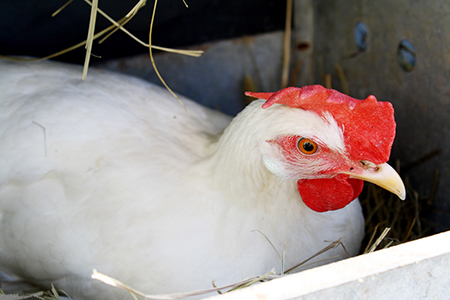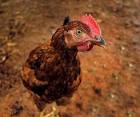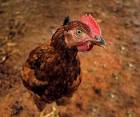
Backyard Chickens: Unlocking Hidden Value Beyond the Eggs
Remember the thrill of those first eggs, warm and fresh from your backyard coop? It's a feeling many homesteaders cherish. But what about all that… other stuff? The manure, the feathers, the used bedding – it can feel overwhelming at times. Turns out, it's gold! Keeping backyard chickens is more than just collecting eggs; it's about embracing a sustainable cycle of resourcefulness. This post will show you how to transform those chicken byproducts into valuable resources for your home and garden, reducing waste and increasing your self-sufficiency. Let’s explore a holistic approach to chicken keeping, where every part of the chicken's contribution is valued and utilized, creating a truly waste-free homestead.

Chicken Manure: Black Gold for Your Garden
Chicken manure is a powerhouse fertilizer, often considered "black gold" by gardeners. Unlike some other animal manures, chicken poop is exceptionally high in nitrogen, phosphorus, and potassium (NPK) – the essential nutrients that plants need to thrive. However, using it directly from the coop can be detrimental. Fresh chicken manure is considered "hot," meaning its high nitrogen content can burn plant roots and damage foliage. That's why composting is key.
Composting chicken manure breaks down the excess nitrogen and stabilizes the nutrients, making it safe and beneficial for your garden. There are several methods you can use:
- Hot Composting: This method involves creating a compost pile with a high carbon-to-nitrogen ratio (about 30:1). The high heat generated kills weed seeds and pathogens, resulting in compost that's ready to use more quickly. You'll need to turn the pile regularly to ensure adequate aeration.
- Cold Composting: This is a slower method that involves layering chicken manure with carbon-rich materials like leaves, straw, or wood shavings. It doesn't require as much active management, but it takes longer for the compost to break down.
- Direct Application (with Caution): In some cases, well-aged chicken manure (stored for at least six months) can be applied directly to the garden soil in the fall, allowing it to decompose over the winter. However, this should only be done with mature compost and in areas that won't be planted until spring.
Before applying compost to your garden, it's essential to test for maturity. The compost should have a dark, crumbly texture and an earthy smell. A simple seed germination test can also indicate maturity: plant a few seeds in a sample of the compost; if they germinate and grow normally, the compost is ready to use.
For a quick nutrient boost, consider making chicken manure tea. Steep a burlap bag filled with aged chicken manure in a bucket of water for a few days. Dilute the resulting liquid until it resembles weak tea and use it to water your plants. This provides a readily available source of nutrients that can quickly revitalize struggling plants. Properly composted chicken manure is a powerful and natural organic gardening fertilizer that can significantly improve soil health and plant growth. Don't forget that composting is also a great way to manage garden and kitchen waste alongside chicken manure, turning waste into treasure!
Feather Fantastic: Creative Uses for Chicken Feathers
Don't discard those feathers! They offer surprising versatility in the garden and for crafts. Chicken feathers, often overlooked, are a valuable resource. They are composed primarily of keratin, a protein that breaks down slowly, releasing nutrients into the soil. Here are a few creative ways to use them:
- Mulch and Weed Barrier: Layering feathers around plants can help suppress weeds and retain moisture in the soil. The feathers create a physical barrier that prevents weed seeds from germinating and reduces water evaporation.
- Composting Feathers: While feathers break down slowly, they can be a valuable addition to your compost pile. Chop them up into smaller pieces to speed up the decomposition process. Adding a nitrogen-rich source, like grass clippings, can also help.
- Crafting with Feathers: Chicken feathers can be used in a variety of DIY projects, such as feather dusters, dream catchers, or embellishments for clothing and accessories. The iridescent quality of some feathers adds a unique touch to any project.
- Stuffing for Small Pillows or Pet Beds: Cleaned and dried feathers can be used as stuffing for small pillows or pet beds, providing a natural and sustainable alternative to synthetic fillings.

When handling feathers, especially those from molting chickens, it's essential to practice proper hygiene. Wear gloves and wash your hands thoroughly afterward to prevent the spread of any potential pathogens.
Coop Bedding Bonanza: Beyond the Poop
The bedding in your chicken coop – whether it's straw, wood shavings, or shredded paper – is more than just something to absorb manure. It's a valuable resource packed with nutrients that can benefit your garden. The bedding absorbs the manure, creating a rich mixture of nitrogen, phosphorus, potassium, and trace minerals. This combination makes it an excellent addition to your compost pile.
One popular method is the "deep litter" system. This involves adding fresh bedding to the coop regularly without removing the old bedding. Over time, the bottom layers of bedding begin to decompose, creating a nutrient-rich compost right in the coop. This system requires careful management to prevent moisture buildup and ammonia odors, but it can significantly reduce the amount of bedding you need to compost separately. Don't just see it as dirty bedding - see it as pre-composted material packed with goodness.
When adding coop bedding to your compost pile, mix it with other organic materials like leaves, grass clippings, and kitchen scraps. This will help balance the carbon-to-nitrogen ratio and create a well-rounded compost that's beneficial for your plants.
Chicken Tractors and Rotational Grazing: Tilling by Talon
Chickens can be valuable allies in the garden, naturally tilling, fertilizing, and controlling pests. A chicken tractor is a portable pen that allows you to move your chickens around the garden, utilizing their natural behaviors to your advantage. Here's how:
- Preparing Garden Beds: Place the chicken tractor in an area you want to prepare for planting. The chickens will scratch and peck at the soil, breaking it up and aerating it. Their manure will also fertilize the soil.
- Controlling Garden Pests: Chickens are voracious insectivores. They'll happily devour slugs, snails, grubs, and other garden pests, reducing the need for chemical pesticides.
- Turning Compost Piles: Use the chicken tractor to turn your compost pile. The chickens will scratch and peck through the compost, aerating it and speeding up the decomposition process.
While chickens can be beneficial in the garden, it's essential to supervise them carefully to avoid damage to plants. Protect young seedlings and vulnerable plants with fencing or netting.
Pest Control with Chickens: Natural and Effective
Backyard chickens can significantly reduce your reliance on chemical pest control. They are natural predators of many common garden pests, including:
- Slugs and Snails: Chickens love to eat these slimy pests, which can decimate vegetable gardens.
- Grubs and Caterpillars: Chickens will happily scratch through the soil in search of grubs and caterpillars, preventing them from damaging plant roots and foliage.
- Ticks: Chickens can help control tick populations in your yard, reducing the risk of Lyme disease and other tick-borne illnesses.
Integrating chickens into a permaculture system can create a self-sustaining ecosystem where the chickens help manage pests and fertilize the soil, while the plants provide food and shelter for the chickens.
Embrace the Whole Chicken Approach
Adopting a "whole chicken" approach not only reduces waste but also deepens your connection to the land and provides a more sustainable and rewarding homesteading experience. As the days get shorter and we move closer to winter, now is the perfect time to start composting your chicken manure and preparing your garden beds for next spring's bounty. By using these creative solutions, you can create a truly waste-free chicken coop and maximize the benefits of having these feathered friends on your homestead.
What are your favorite ways to use chicken byproducts? Share your tips and experiences in the comments below!
